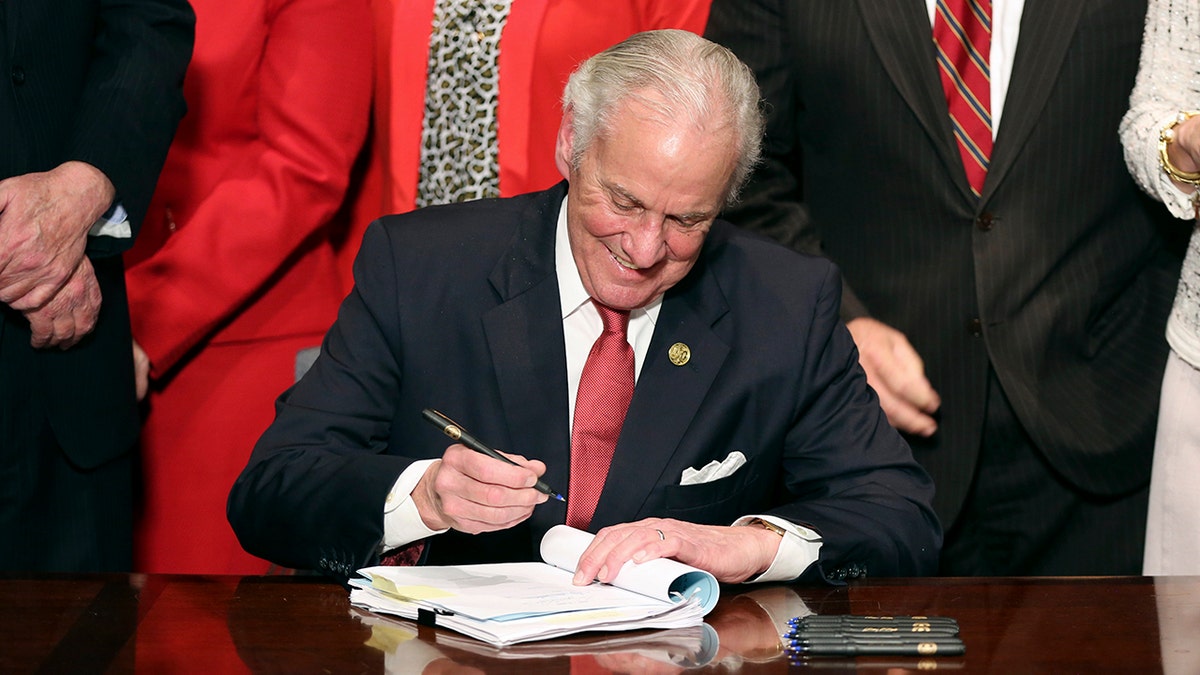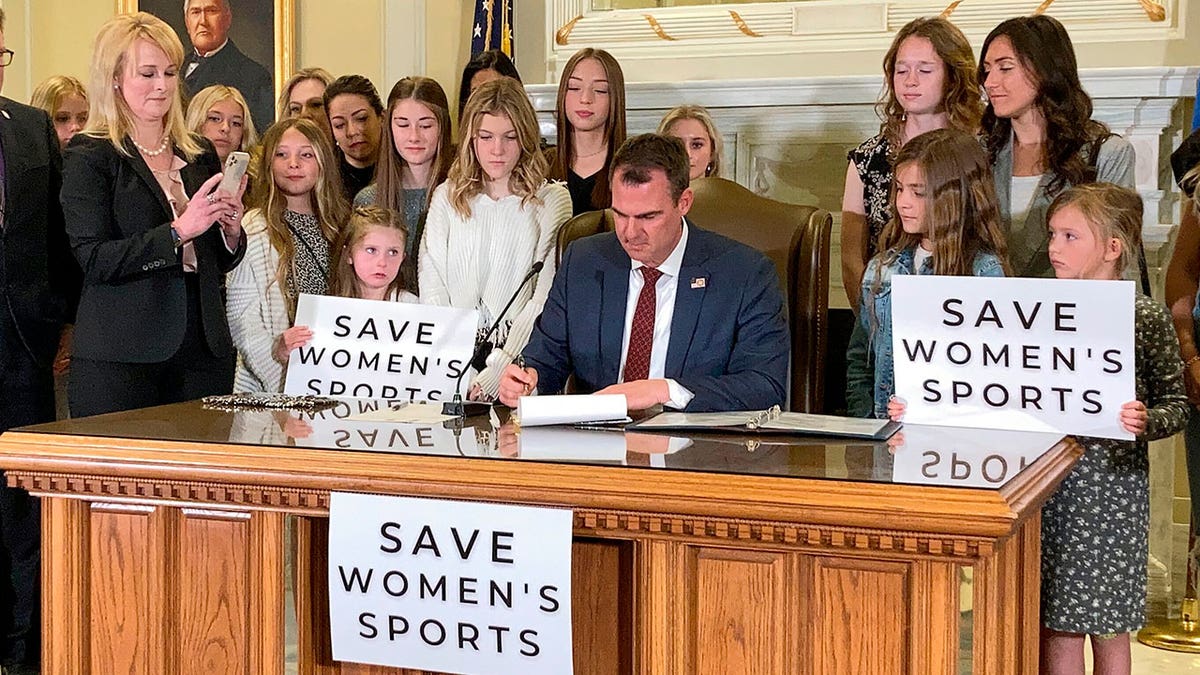Clay Travis reacts to White House dodging questions on transgender athletes: 'You have to make a choice'
Outkick founder Clay Travis joined 'America's Newsroom' to discuss fairness in women's sports as the Department of Education is set to unveil new rules for transgender athletes.
The South Carolina House of Representatives has approved a bill barring transgender athletes from competing in women's sports at public grade schools and universities.
The bill, which saw almost 1,000 proposed and rejected amendments, passed Tuesday with a vote of 82-28. The bill sparked hours of debate, despite the overwhelming vote in favor.
"We need to make certain that our girls are protected, and I’m committed to that, so let the chips fall where they may," said state Democratic Rep. Cezar McKnight, according to a report from Center Square.
"Do you know why they came in second and third place? Because that transgender lady used to be a man who swam like a man," McKnight added. "And you cannot get over the fact that that transgender young lady comes with the physiological advantages of being a man and those advantages cannot be overcome by women."

South Carolina Gov. Henry McMaster signs into law a bill banning almost all abortions in the state Thursday, Feb. 18, 2021, in Columbia, S.C. On the same day, Planned Parenthood filed a federal lawsuit to stop the measure from going into effect. The state House approved the "South Carolina Fetal Heartbeat and Protection from Abortion Act" on a 79-35 vote Wednesday and gave it a final procedural vote Thursday before sending it to McMaster. (AP Photo/Jeffrey Collins)
South Carolina is only one in over a dozen states across the country pushing similar legislation on women's sporting events.
The Utah Legislature voted in March to override Republican Gov. Spencer Cox's veto of a measure that would prevent transgender girls from participating in female sports in schools across the state.
In a 56-18 vote with a supermajority needed, the Republican-controlled House first voted to override Cox’s veto. Shortly after, the Senate gave final approval to override the veto by a vote of 21-8.
Oklahoma Gov. Kevin Stitt signed a bill into law last week that prevents transgender girls and women from competing on female sports teams, joining a dozen other states with similar laws.
Flanked by more than a dozen young female athletes, including his 14-year-old daughter Piper, Stitt signed the measure, dubbed the "Save Women's Sports Act."
CLICK HERE TO GET THE FOX NEWS APP

Oklahoma Gov. Kevin Stitt signs a bill in Oklahoma City on Wednesday, March 30, 2022, that prevents transgender girls and women from competing on female sports teams. Stitt signed the bill flanked by more than a dozen young female athletes, including his eighth-grade daughter Piper. (AP Photo/Sean Murphy) (AP)
Gov. Andy Beshear of Kentucky has vetoed a bill banning transgender athletes from competing in sex-segregated sporting events.
Beshear, a Democrat, refused to sign the bill Wednesday after claiming it was most likely unconstitutional. Beshear claimed the legislation "discriminates against transgender people" and therefore would not hold up in court.










































